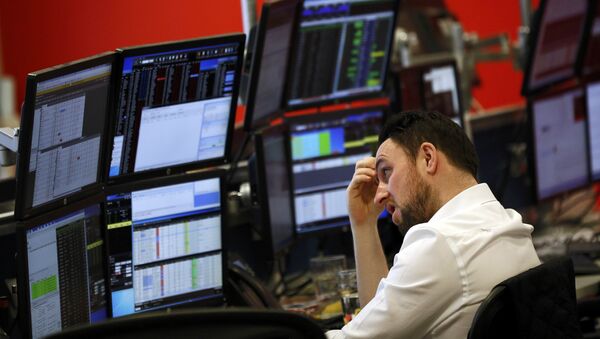"What that price is — be it 30 dollars, 40 dollars, even 20 dollars – is not clear because we’re in the eye of the storm at the moment," he said.
According to Aris, the problem with the oil prices is not just the gap between supply and demand, but rather a combination of several factors.
First, the oil prices were definitely affected by the so-called advent of shale oil and the drastic increase in US oil production.
"America has gone from [producing] nothing to 9 million barrels a day. To put that into context, Russia is currently the biggest producer of oil with 10.8 million barrels a day. So the American production has really made a huge change," Aris remarked.
Also, the fact that vast reserves of shale oil had suddenly become available also changed the equation, making it clear that oil will last for at least several hundred years.
"And finally, oil had also become a financial commodity. The volume of futures traded on the market was two or three times the physical supply of oil. So the people who have been investing into oil as the financial product as opposed to the physical entity have also had to readjust. And clearly a lot of people have lost a lot of money there," Aris pointed out. He likened the drop to "a classic financial collapse."
He also added that the current unstable situation in Ukraine and in the Middle East also makes predicting future oil prices somewhat problematic.
"It’s really not clear what’s going to happen there, where the state is going to try and contain Russia by keeping it weak in the long term or whether the wars in the Middle East and in Eastern Europe become so bad that everybody wants to strike a deal and fix it and move on," he concluded.
The 46th World Economic Forum has wrapped up in the Swiss ski resort of Davos. Some 2,500 participants from some 100 countries, including the leaders of 40 states, gathered in Davos to discuss the most urgent international issues, including falling oil prices, anti-Russia sanctions and the prospect of Iran's return to the global market.




